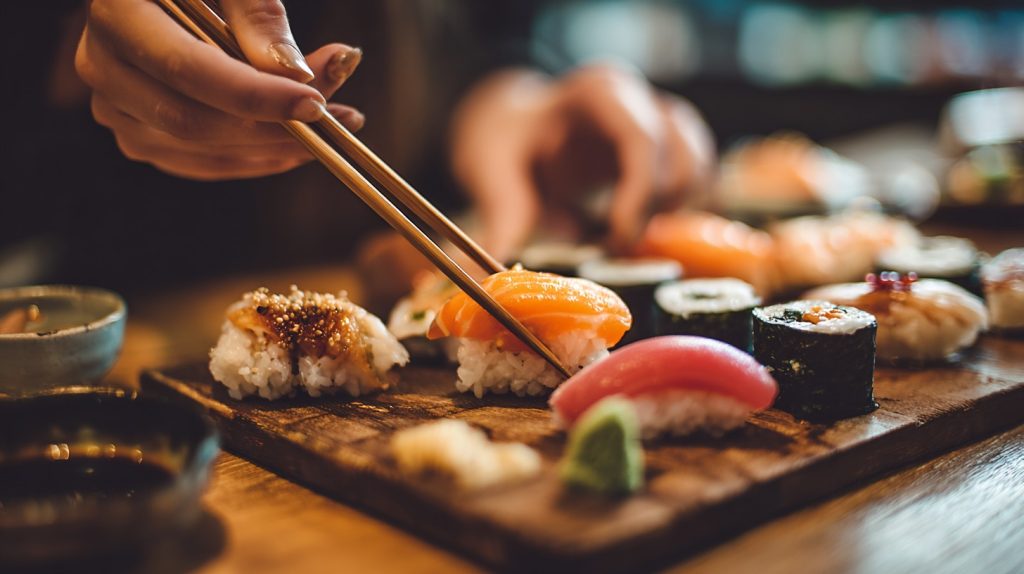Trying to eat better often starts with control.
You count, track, follow rules, and try to stick to the plan.
And at first, that can feel good. It feels like progress.
But over time, control gets heavy.
You start to second-guess every choice. Meals become something to get “right.” And if you don’t, you feel like you’ve failed.
If that sounds familiar, you’re not alone.
Why We Try to Control Food
Control feels safe. Predictable.
If you’ve struggled with your eating for years, controlling food can feel like the only way to keep things in check.
You might think:
- “If I stop tracking, I’ll spiral.”
- “If I don’t follow this plan exactly, I’ll mess it up.”
- “If I let myself eat what I want, I’ll never stop.”
So you cling to control. But at some point, it starts to control you.
What Confidence Looks Like Instead
Food confidence isn’t about getting it perfect.
It’s about trust.
Trust that you can feed yourself in a way that feels good without rigid rules.
Trust that one meal doesn’t undo your progress.
Trust that you can make decisions based on how you feel, not fear of messing up.
This doesn’t mean you stop caring. It means you stop obsessing.
Signs You’re Stuck in Control Mode
If you’re not sure whether control is holding you back, here are some common signs:
- You feel anxious when plans change and you can’t eat your “usual” meals
- You eat perfectly during the day, then binge at night
- You avoid events or trips because of food
- You feel guilty for eating something that isn’t “clean”
- You think about food constantly, even when you’re not hungry
- You either feel 100 percent on or totally off
This isn’t about blame. It’s about awareness.
You can’t change what you don’t notice.
What Builds Food Confidence
Confidence isn’t something you wait for. You build it by doing.
And you don’t need to do anything extreme. You just need small, consistent shifts that create more ease around food.
Here are a few examples:
- Eating without tracking for a few meals
- Choosing food that satisfies you, not just what you “should” eat
- Letting go of guilt after eating something sweet
- Practicing flexible meals that still feel good
- Listening to your hunger before, during, and after meals
- Trusting that your body won’t fall apart if you don’t stick to the plan
Each time you do one of these, you prove to yourself that food doesn’t need to be a battle.
Three Mindset Shifts That Help
If you’re used to controlling food, here are three reframes that can help shift you toward confidence.
1. From “What should I eat?” to “What would feel good and satisfy me?”
When every meal is based on rules, you lose touch with what actually feels good.
Try asking yourself what would leave you feeling full, satisfied, and steady – not just what sounds healthy on paper.
2. From “I blew it” to “One choice doesn’t define my day”
You didn’t fail because you had a cookie.
You didn’t undo your progress with one meal.
You’re allowed to eat and move on without starting over.
3. From “I can’t trust myself” to “I’m learning to notice, not control”
You don’t need to force or fight your cravings.
You can learn to pause, notice, and respond with awareness.
That’s how trust is built – one decision at a time.

You Don’t Have to Earn Peace
A lot of people think they have to “get it right” for a certain amount of time before they can relax around food.
But peace isn’t something you earn by being perfect.
You can start practicing a more peaceful approach right now.
Even if you’ve struggled for years. Even if yesterday felt like a mess.
The door is always open.
The Goal Isn’t to Never Think About Food
It’s to think about it less.
To make a choice and move on.
To eat in a way that supports you – without obsessing over it.
To trust yourself again.
You don’t need control to feel safe. You just need practice, patience, and a shift in how you see yourself.
Final Thoughts
Control feels productive. But it’s often driven by fear.
Confidence feels slower. But it’s what brings lasting peace.
You don’t need to jump from one to the other overnight. You just need to start noticing where control is weighing you down – and where you might be ready to loosen your grip.
Start with one thing. One choice. One small act of trust.
That’s how confidence is built. That’s how food becomes just food again.

